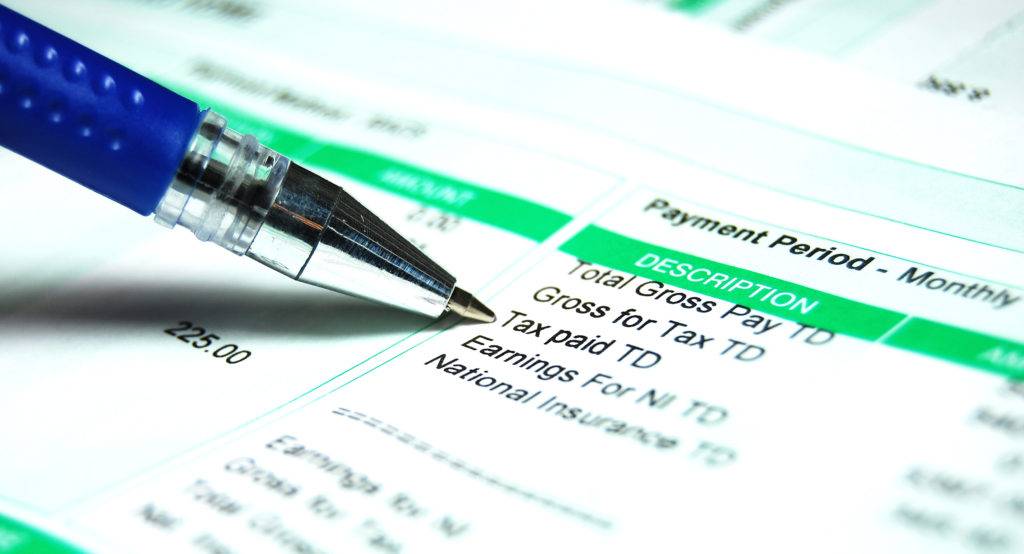If you owe back taxes to the IRS, it can seem like there are few options available to you. The IRS is the largest collection agency in the world and has the power to garnish your wages and drain your bank account. Protecting yourself can feel impossible. However, if you follow these 10 steps, it will greatly increase your odds of success in obtaining the tax relief you need:

1. Don’t Panic
Decisions made hastily or under stress are rarely the best. Owing back taxes to the IRS can be incredibly stressful, but if you want the best outcome you’ll need to relax and tackle this problem intelligently. The good news is that, with the right plan and resources, almost all IRS problems can be resolved.
2. Gather Documentation
Go back through your records and make sure you have your filed tax returns for the past several years, as well as any supporting documentation. The IRS is fairly good at determining what you owe, but they are not perfect. Double check what they say you owe against the returns you actually filed and recalculate the tax, interest, and penalties for yourself to make sure they are correct.
3. Perform a Review
In addition to verifying the balances on the returns you filed, you need to review your returns again to see if there were any deductions you may have missed. If the statute of limitations hasn’t expired, an amended return might be a possibility to reduce your overall liability.
4. Assess your Resources
Once you have verified the amount of tax relief that you need, you next need to determine what resources you have available to help solve the problem. For example, do you have available cash that you can use to pay off the IRS? How about available credit for a loan? Generally, a private loan is a better deal than an installment agreement with the IRS. Do you have any assets that you want to sell or that you can borrow against? You want to have as complete a personal financial picture as you can get before you start dealing with the IRS.
5. Consider your Options
Depending on the amount you owe and your financial condition, there are various options available to resolve your back-tax debt. The Offer in Compromise is what you hear most about, but it’s not the best choice for everyone, and not everyone qualifies. An installment agreement allows you to pay off your back-tax debt over time. Non-collectible status stops IRS collection activities but doesn’t reduce or eliminate your debt. Penalty abatement is another option which can often reduce the overall amount that you owe.
6. Correct your Path
In order to get any kind of deal with the IRS regarding your back taxes, you have to be current with all of your filing and payment obligations. That means, you can’t have any late unfiled returns and if you are required to make estimated payments, they must be current as well. The IRS doesn’t want to settle on your back-tax debt only for you to be in the same position a year or two later.
7. Stay the Course
Once you have met all of your filing and payment obligations, review them periodically to see if they need to be adjusted. If you need to make additional estimated payments or adjust your withholding, it is easier to take care of early as a small adjustment, then to deal with a larger adjustment later in the year.
8. Be Wary of Scams
If you owe money to the IRS you may find yourself bombarded with constant telemarketing calls offering tax relief services. These companies employ high pressure sales people who promise results that sound too good to be true. They prey on vulnerability and fear of the IRS to charge exorbitant fees. Often, they funnel all of their clients into Offers in Compromise that they know have little to no chance of success. Later, when the offer is ultimately rejected by the IRS, you are left with the original tax debt, plus additional interest and penalties, and you are out the fee that you paid.
9. Get Help
Not many people are comfortable dealing with the IRS directly. Even less are good at it. The IRS is an enormous government bureaucracy and if you’re not familiar with their rules or how they operate, you will be operating at a tremendous disadvantage. Dealing with the IRS can also be incredibly frustrating – complicated forms, endless hold times, etc. Don’t risk your financial future, or your sanity, by attempting to solve your IRS problems on your own. Seek out a competent professional to help guide you through the IRS maze and achieve the best possible results for you. Taxlane deals with IRS problems every day, and with over 20 years of experience, we are here to help you get the tax relief you need.
10. Remain Compliant
Many of the tax relief deals that you make with the IRS will require you to remain current with all of your filing and payment obligations. For example, missing a payment will void your Installment Agreement, and filing a return with a significant unpaid balance can void your Offer in Compromise. If you want to keep the IRS out of your life in the future, you need to stay on track with the corrections you make during this process.
Following these ten simple steps will save you hours of headaches and help you secure a more promising financial future. While navigating the complexities of dealing with the IRS, remember the resources and tactics available to you, and don’t forget to reach out at any time during the process.


